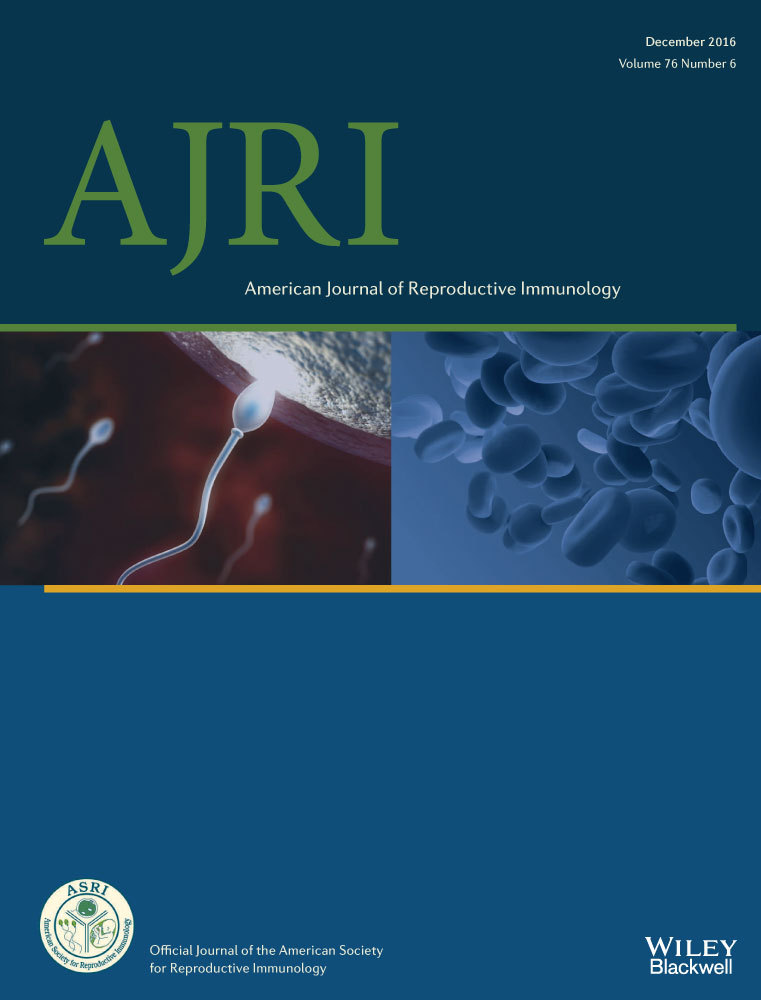Is HLA-E a possible genetic marker relevant for natural conception?
Funding information:
FUNPAR-LIGH
Abstract
Background
HLA-E products, class Ib human leukocyte antigens, act in the immunology of human reproduction as modulators of the maternal immune system during pregnancy.
Aims
To evaluate HLA-E role in the establishment of a viable pregnancy.
Materials & Methods
HLA-E was genotyped by sequence-based typing (SBT) and analyzed for specific polymorphisms, comparing couples who underwent assisted reproduction treatment (ART) and fertile control couples.
Results
There was a significant difference in HLA-E allele and genotype distributions between ART couples and control couples. The allele HLA-E*01:03 was observed in 63.2% of ART men and in 35.1% of fertile men (P = 0.0032).
Conclusion
These results suggest that HLA-E allelic variants may play a role in the modulation of immune responses in the context of the inability of natural conception and establishment of a viable pregnancy.




